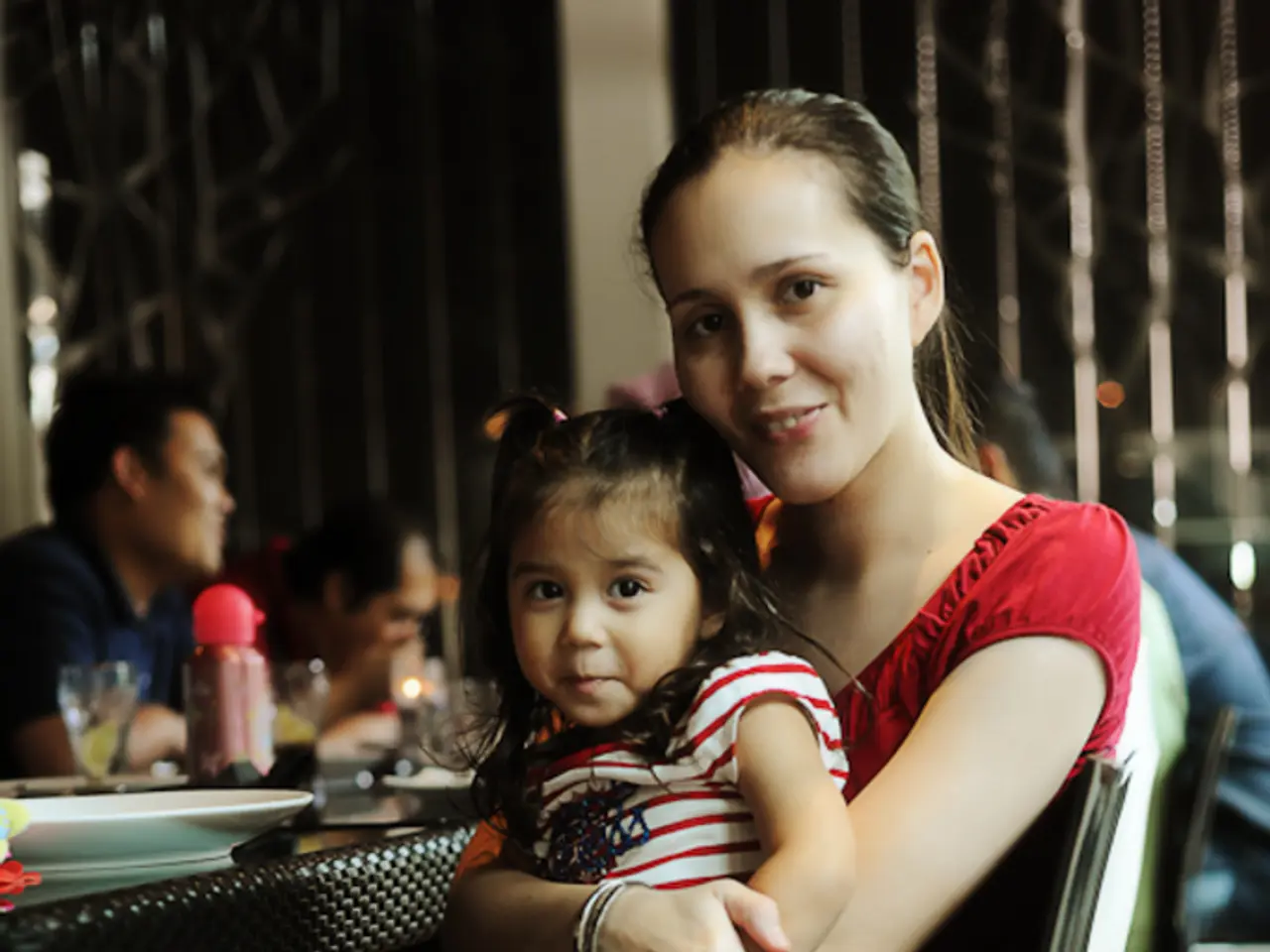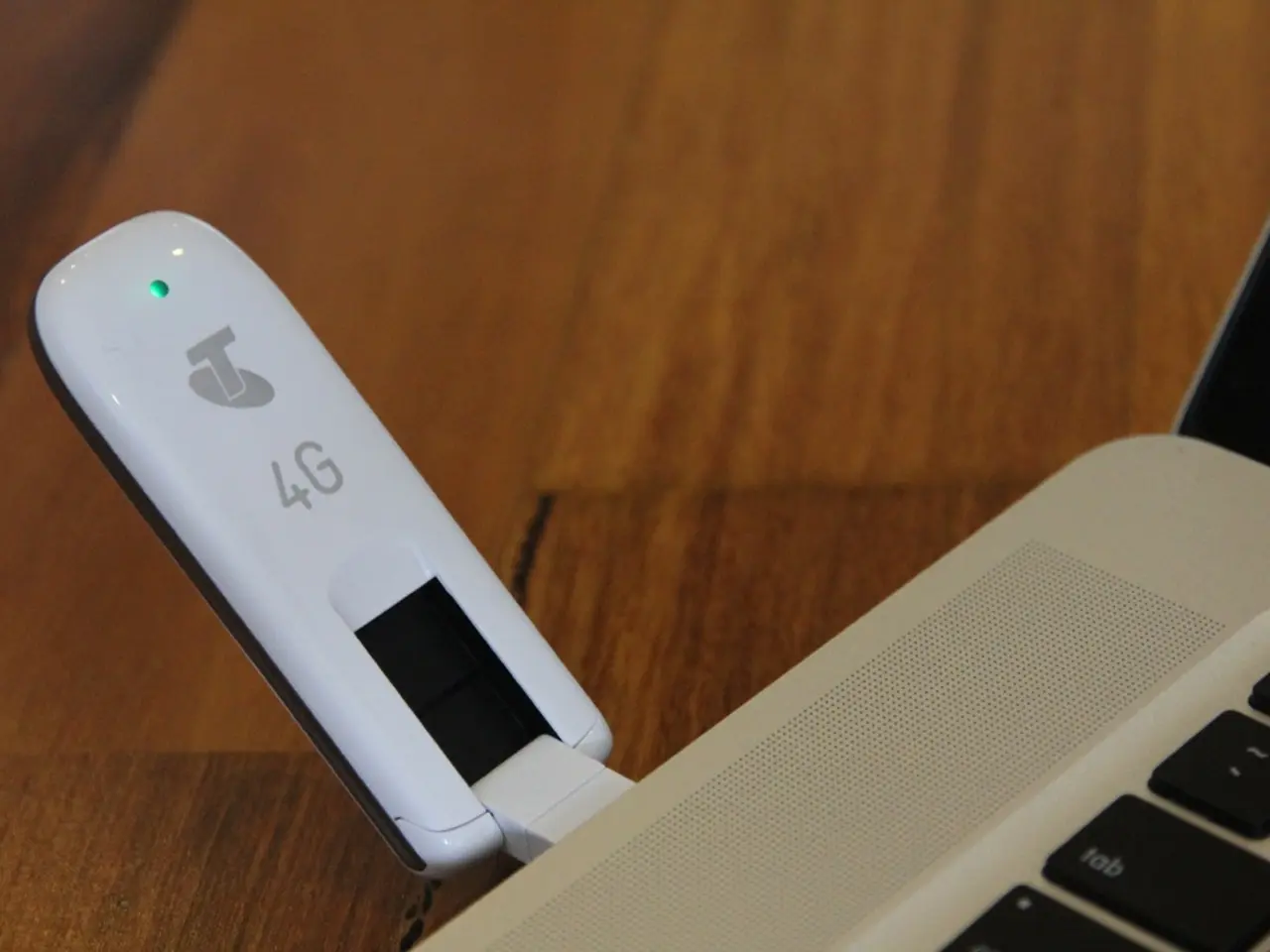postnatal anxiousness: Signs, remedies, and further insights
Postpartum anxiety and postpartum depression (PPD) are distinct but related mental health conditions that affect women after childbirth. While they share some symptoms, they differ in their primary symptoms, treatment approaches, and risk factors.
Differences in Symptoms
Postpartum anxiety is characterised by excessive worry, fear, panic attacks, and racing thoughts about the baby's health or safety, as well as restlessness and physical symptoms like heart palpitations. On the other hand, postpartum depression is marked by persistent sadness, intense mood swings, feelings of guilt or worthlessness, and a pronounced inability to bond with the baby. Both conditions can include irritability, difficulty sleeping, concentration problems, and fatigue.
Differences in Treatment Options
The treatment options for postpartum anxiety and depression are similar to those used for other types of anxiety disorders and depression, respectively. Psychotherapy, such as cognitive-behavioral therapy (CBT), is a common treatment for postpartum anxiety, targeting anxiety and fear. For postpartum depression, CBT, interpersonal therapy, and other forms are used to address depressive symptoms.
Anti-anxiety medications or Selective Serotonin and Noradrenaline Reuptake Inhibitors (SSRIs and SNRIs) are sometimes used to treat postpartum anxiety, while antidepressants such as SSRIs are common and effective in treating postpartum depression. Stress reduction, sleep improvement, and support groups are essential for both conditions.
Differences in Risk Factors
Risk factors for postpartum anxiety include a history of anxiety disorders, high stress levels, lack of social support, traumatic birth experiences, and hormonal fluctuations. For postpartum depression, risk factors include previous depression, hormonal changes, sleep deprivation, stressful life events, lack of support, and complications during delivery.
Summary
Postpartum anxiety involves overwhelming worry and fear, often with physical symptoms like panic attacks, and overlaps with PPD symptoms but focuses more on anxiety-driven behaviors. Postpartum depression is characterized by persistent sadness, exhaustion, and difficulty functioning, lasting longer than typical postpartum mood changes (baby blues). Both conditions require medical attention, including therapy, possible medication, and social support, with sleep management highlighted as crucial for recovery.
Screening for both disorders postpartum is important due to their potential co-occurrence and impact on mother and child well-being. According to a 2021 report, 11-21% of women living in the United States develop an anxiety disorder in the perinatal (during pregnancy) and postpartum period.
Potential risk factors of postpartum anxiety that may be preventable to some extent include experiencing many stressful life events or a lot of stress during pregnancy, low levels of social support, problems adjusting to life/relationships after childbirth, having previous unwanted pregnancies or surgical abortions, taking certain approaches to cope with problems or major life changes, increased fear of childbirth, and fear for the life of the fetus or oneself during delivery, worry about lack of control during the labor process, lack of confidence in one's ability to handle delivery or in the medical staff performing or assisting with the delivery, increased worries about parenting skills or ability, lack of sleep, and changes at work.
Antianxiety medications, such as benzodiazepines, are also used to treat postpartum anxiety. People experiencing postpartum anxiety or who think they are experiencing symptoms of it should talk with a doctor as soon as possible. Aromatherapy, which involves breathing in calming or soothing essential oils, may help reduce or manage postpartum anxiety. However, people who are breastfeeding should not apply essential oils to their skin because they can enter the bloodstream and cross over into breast milk.
Some studies suggest that people may be even more likely to develop postpartum anxiety during the COVID-19 pandemic. It's crucial to prioritize mental health care and support during this time.
- The science of health-and-wellness has highlighted the necessity of screening for postpartum anxiety and depression due to their potential co-occurrence and impact on a mother's mental health and well-being.
- Pfizer's Selective Serotonin and Norrenaline Reuptake Inhibitors (SSRIs and SNRIs) are sometimes used to treat postpartum anxiety, while antidepressants such as SSRIs are common and effective in treating postpartum depression.
- Despite the potential benefits of aromatherapy in managing postpartum anxiety, breastfeeding mothers should avoid applying essential oils to their skin because they can enter the bloodstream and cross over into breast milk.
- The health-and-wellness industry is advising prioritizing mental health care and support, particularly during the COVID-19 pandemic, as some studies suggest that women may be more likely to develop postpartum anxiety during this time.




